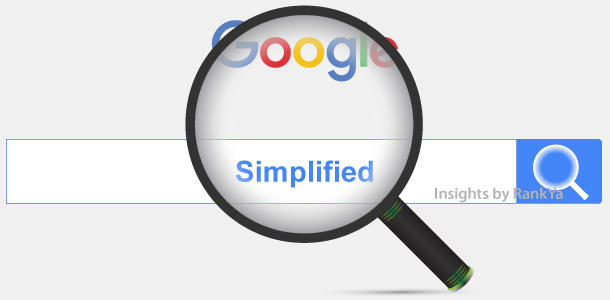For simplicity sake, when you hear the term “content” remember that covers everything including textual content such as your name, address, or other content types such as images, videos or any others you want removed from Google. Because Google search engine works like that when it indexes the internet (its like a hungry little monster that wants to eat up EVERYTHING on EVERY URL). Now that we know this important fact, how can you remove your content from Google? Easy, by following the correct paths.
Back in 2015 I’ve created the below video which highlights basics of removing your name from Google (insights you can still find useful) Remove Your Name from Google Search Results
Depending on the country or continent you live in, different laws and protections apply. For example: if you are a lucky citizen of a country within European Union, then simply head out here and begin the process of right to be forgotten with EU Privacy Removal because:
In May 2014, a ruling by the Court of Justice of the European Union (C-131/12, 13 May 2014) found that certain people can ask search engines to remove specific results for queries that include their name, where the interests in those results appearing are outweighed by the person’s privacy rights.
Removing Content From Google When the Content is On Some External Website/s
STOP emailing the website owner who published your details, and do not email Google either because Google search engine acts as an intermediate gate-keeper between the searcher, and the website in question.
When the content is found on some external website that is NOT owned by Google. You need a different approach for removing content about yourself.
Why shouldn’t you quickly email the site owner or Google with take down notices? Because in almost 99% of cases, neither the website owner, or Google will deal with these types of email requests.
Think it like this: if your content (name or image) is hosted on some external website, even if Google removes it from its search results, by the nature of the way its search engine algorithms work, that same content will re-appear as soon as Google’s web crawlers (Googlebot) crawls the same website again. That means, Google doesn’t waste time reading emails asking for removal of content from its search results.
Furthermore, website owner may not even read your email because spam folder may catch your email. And, if they do end up reading your email asking them for deleting content from their website, 99% of times they will NOT delete it but instead realize that you an amateur and thus may publish even more content and ignore your future requests for removals.
That is why, you need to pull your sleeves up and begin the process of removal requests THE RIGHT WAY.
First: its research time, you need to find out the original source (who published the content? Local newspaper? Local court public records? News channels? Who? The actual take-down process begins with identifying the owner of the domain name/s by doing a whois search
Simply place the domain name in to the box and voila, you get contact details shown to you. Whois search reveals who registered the domain name your details are published at, or at least will show who to contact about the domain name. Keep in mind that sometimes, the domain is registered privately, even then you’ll still be able to see an address to contact about the domain name your details are published at.
Write down all the information down (Name, Address and or other information) WHOIS search reveals about the domain name in question.
Process to Follow at this Stage
Now that you know who to contact, do NOT email them at all if you want the removal process to be successful. Instead you can send them a Cease and Desist Letter in USA, Tort law in Australia (or find out your own country jurisdictions about your rights under the law).
What is a Cease and Desist Letter?
This is a letter sent to an individual or business that is engaging in copyright infringement or defamation or even illegal behaviour. The letter acts as a formal request that the recipient stop “cease” and not continue “desist” this behaviour.
Why Send a Cease and Desist Letter?
Because the information you want removed is causing you emotional stress if nothing else. And thus you are within Legal Status and protection of common law. For example: Defamatory
The term “defamation” means any action or other proceeding for defamation, libel, slander, or similar claim alleging that forms of speech are false, have caused damage to reputation or emotional distress, have presented any person in a false light, or have resulted in criticism, dishonor, or condemnation of any person.
Countries such as USA, Australia, India, United Kingdom and many other western countries have laws protecting individuals and businesses against copyright and defamation (which includes your name, images published on websites which may be causing you emotional distress, and therefore, the website owner has a case to answer should they refuse to delete such content). That means, sending out a Cease and Desist Letter (or similar documents in other countries) will inform the website owner of this.
Who Can Send this Letter?
Anyone, including you especially if you are good at communicating in writing and can use legal terms well. Although you can find many templates online (just search Google image search) its much better to have a lawyer write up and send this document to the website owner. If you are going to write it up yourself and send it, make sure that you first take a photocopy of this letter before sending, and use the normal postal mail (paper trail is extremely important) instead of email. Here are Cease and Desist Letter samples to consider if you choose to do it yourself when removing your name from Google.
Once you send out the letter of Cease and Desist, now waiting begins. Allow around 2 to 4 weeks to double check the website in question. Usually, upon receiving this letter most website owners will actually delete your information from their website. Because when someone registers a domain name, most countries require that they are operating a registered business. In all cases, website owners don’t usually want to keep dealing with law requests which may damage their own business reputation. What’s very important to understand about this is the fact that you’ve taken the right initial approach for removing your name from Google.
What If The Web Site Owner Doesn’t Remove the Content?
Unfortunately, this could happen for various reasons, but do not lose hope nor give up trying to remove your name or other information that you do not want on internet. Instead, the next step is to contact the website hosting company who is providing web hosting services to that website your content is at. And send them copies of the previous letter/s and try to get them to notify the website owner (which may often times resolve the matter) because no website owner want to be contacted by their web hosting company about legal issues.
Following the above approach has been successful in most cases when removing your name from Google. Why?
Google search engine will also remove the content automatically from its search results because its algorithms can not show information that no longer exists on the external website.
What If The Site Owner & Web Hosting Company Isn’t Taking Action for Removing That Content?
At this stage, if neither have responded, you still have options and whatever you do, don’t give up trying to remove the content because longer it stays online can mean more websites can scrape that very content creating even more of a challenge for you in the future.
Option 1
Start legal proceeding by engaging the services of a lawyer
Option 2
Use Google ranking mastery techniques and get the website in question de-indexed (will be successful for most website types (apart from large players like Yelp Facebook YouTube))
Option 3
Counter-act Google search results by providing positive (this could also be confusing results for the searcher depending on what search term you want protected) information about yourself or your business, and by outranking other websites in Google Search, because truth be told, its not that hard to rank in the first page, entire first page on desktop for most search terms related to Personal or Business Names you want to protect). RankYa website shares the know-how and resources to do this type of reputation management.
Not Recommended But Still Are Options
When most other efforts have failed, some other people have tried DMCA application whereby they claim the copyright over the content in question. They do this by creating a new website using a deleted domain name (you can easily find one online) and publish the same content (the same information on the webpage you want removed).
You Can Manage Your Details
Don’t give up, its important. Although Google policies can be confusing, its your responsibility to take action and not leave your name defenseless on internet. I’ve shared useful insights with you for dealing with negative and stressful search results (regardless of the term being searched).
All of the above insights was for How to remove your content from Google when the content in question is on external website/s that is NOT owned by Google.
Google Inc. is a global business, as a result they own and operate many different products such as Google Maps, YouTube, Google Docs, Google Images, Photos etc. That means, Google has its own internal processes for removing content that is hosted on their own servers. Use this Tool for removing content from Google Products (simply select the Google Product and follow the instructions).
Remember that if you do not take any action, then the content you want removed isn’t going anywhere and by the nature of how internet works, more and more other websites may publish the same information.



Hi!
4 years ago i wrote a 1 comment with full name, now that news and comment section apears in google search when i google my name!? It is always in top 3-4 results. What can i do? It is irritating. I need to remove it!
Thank you
Hello Apex, first, this is usual online, so you are not alone wanting to remove content from Google search engine for comment replies. The best thing to do is contact the website owner and ask them to DELETE that particular comment. Usually the website owner will delete it. Perhaps say things “to the webmaster, I’ve enjoyed your article and left a comment (GIVE LINK TO THE COMMENT), however, I would kindly request that particular comment be deleted”. This should work. If not come back here and let’s see what else we can do to remove that content from Google.
Hi, I have been trying to remove my name from google search. unfortunately i cannot do it.
Can you please please help me as the country i am living in now is great but certain people are looking me up on google and using the information against me. I was living in the United States for 30 yrs and i am now living in Ireland married . my last name now is Oconnell. but the site is under my maiden name.
PLEASE HELP ME.
Hello Bina, please do use https://www.rankya.com/contact/ as RankYa now provides reputation management solutions that includes removing content from Google
can someone help me getting my name off Google search
Hello Terry, how to remove your name from #Google has been popular blog post by #RankYa and depending on the matter, we offer services to manage reputation and also Google results. Simply contact us with more details